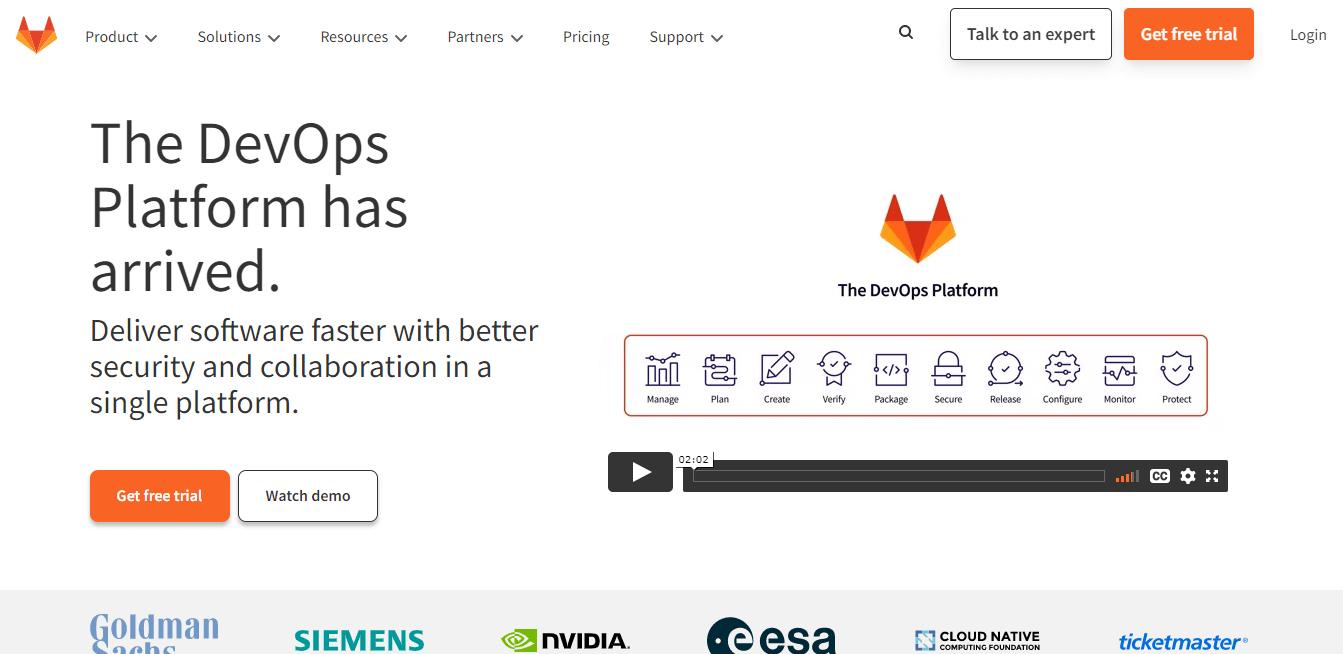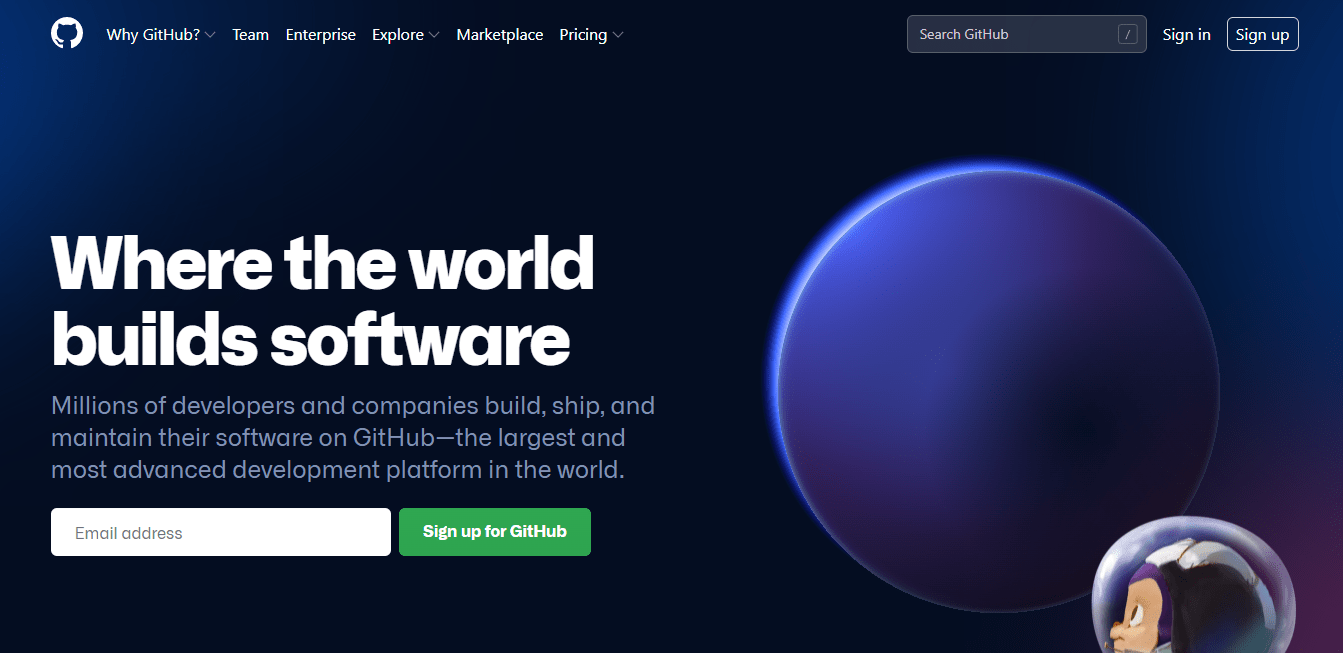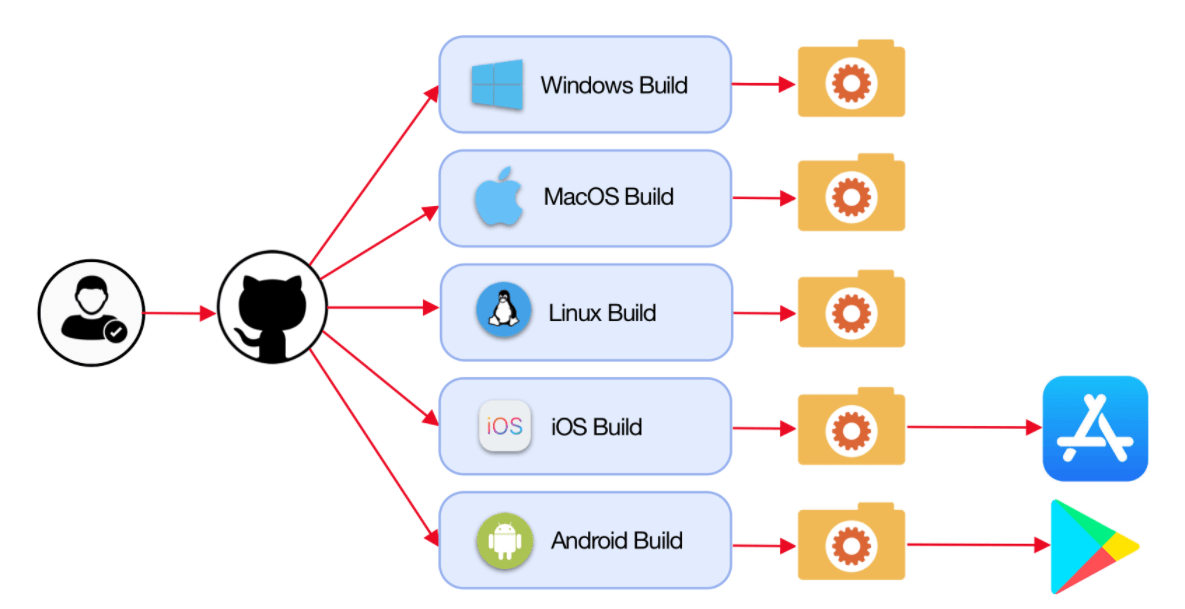GitLab vs. GitHub
GitLab and GitHub are two top-rated source code management systems. However, these platforms offer far more than resources to manage your code. Instead, they prove their utility in all significant aspects of your workflow, including project management, security, collaboration, and more. Read on to find out how these tools stack up head-to-head, which option we recommend, and the best use cases for GitLab and GitHub.
Our Recommendation = Get GitLab

A few years ago, GitHub would have been the obvious winner of this debate. But GitLab has made incredible strides to move past just allowing code management. Today, GitLab is a complete DevOps tool, handling the entire project lifecycle from start to finish.
GitLab does a terrific job of unifying development, deployment, and DevOps on a single platform. This setup is heaven-sent for teams looking to integrate code management, deployment, and monitoring.
Additionally, GitLab offers fine-tuned authentication levels that suit larger teams and enterprises. Such groups typically don’t have traditional role-based contributors. Admins on GitLab can fine-tune authentication to ensure each individual gets the precise access they need to get the job done.
Delving back to the history of both tools also reveals clues on why GitLab may be the better choice for most teams. At its core, GitHub was designed as a repository hosting platform. On the other hand, GitLab was first intended as a collaboration tool. You can tell the difference when working with large teams on either platform.
Finally, GitLab is undoubtedly the way to go if you prefer to work from a private server. Being an open-core platform, you can easily install the platform on a private server.
When to Get GitHub Instead

To be fair, the winner between GitLab vs. GitHub isn’t always apparent. However, there are certain situations where GitHub is the better option. One obvious scenario that comes to mind is when you’re looking for a lot of community support.
GitHub has been around far longer than GitLab, and such has a massive community of developers that can help to solve everyday problems. Pick a developer at random, and they are more likely to be familiar with GitHub. This situation makes it easier to get help on common issues such as installations, readme, and reporting or even more complex issues.
Additionally, GitHub is a more stable platform than GitLab. If you are only interested in code management, GitHub will serve you well. You won’t have to deal with spontaneous bugs and issues that GitLab users regularly complain about. GitLab is undoubtedly getting better in this aspect but isn’t quite as stable and intuitive as GitHub.
Finally, if you’re only looking for a version control system to collaborate with developers and programmers, GitHub is the more affordable option. Sure, GitLab comes with great out-of-the-box features, but it is pricey. On the other hand, you can build the same functionality with GitHub integrations, most of which are free. It may take longer, but GitHub is highly customizable.
Pricing – Is GitLab or GitHub the Better Deal?
Comparing GitLab to GitHub is a little like comparing apples to oranges. Many features overlap across both platforms. But each option has something unique to bring to the table in many instances. Let’s look at a breakdown of GitLab vs. GitHub pricing.
GitLab Pricing
GitLab has a free version for individual users. This package covers the entire DevOps lifecycle. It also comes with the platform’s fundamentals, including 400 CI/CD minutes per month, lets you use your own GitLab CI runners, and you get free static websites.

When you’re ready to power up, GitLab offers two pricing tiers as follows:
Premium – This plan costs $19 per user per month. It comes with advanced CI/CD, release controls, enterprise agile planning, and self-managed reliability.
Ultimate – This plan comes with everything available with Premium, in addition to advanced security settings, compliance, security risk mitigation, and value stream management, among other features.
GitHub Pricing

Just like its competitor, GitHub offers a free plan. With it, you get unlimited private and public repositories, 500MB of storage, 2,000 automation minutes per month, and community support. The platform also offers two paid plans as follows:
Team – This is GitHub’s most popular plan costing $4 per user per month. You get everything in the free plan, in addition to protected branches, draft pull requests, access to the Codespaces, and a slew of other features.
Enterprise – Costs $21 per user per month. You get additional features not available with the Team plan, including GitHub Connect, advanced auditing, automatic updates, and up to 50GB of storage.
So back to the question of which one offers the better deal. GitLab’s free version is certainly the better deal if only for its CI/CD functionality. Overall, it provides many more features than GitHub’s free offering, and it spans the entire DevOps lifecycle, which is hard to beat.
Moving on to the paid plans, GitHub is cheaper. So, from a pure price perspective, GitHub is the better deal..but only if you are willing to give up GitLab’s extra features. Ultimately, GitLab justifies its higher price tag with additional features beyond mere source code management.
Open Source Repository Platform
Winner = GitLab
Both platforms let you host open-source projects. But GitLab is the clear winner in this regard. First off, GitLab’s source code is open source while GitHub’s isn’t. This distinction may not matter for the vast majority of users, but if you are a Git purist or are afraid of vendor lock-in, GitLab is the way to go.
Additionally, GitLab offers self-hosting with its free plan. You can quickly download the codebase to run locally. There’s even the option for paid support if you wish. With GitHub, you’d need to upgrade to a paid service to enjoy self-hosting.
Free Private Repositories
Winner = GitLab
One of the ways that GitHub made money was by offering private repositories only with its paid plans. GitLab offered private repositories on its free plan right off the bat, causing many users to migrate. GitHub has since changed tune and followed in its competitors’ footsteps.
Both GitLab and GitHub now offer unlimited free private repositories with unlimited collaborators. But, this is where the similarities end. GitLab’s free offering is far more robust than its competitor.
For example, the maximum repository size on GitLab’s free plan is 10 GB compared to GitHub’s 0.5 GB. Additionally, the maximum file size on the free GitHub plan is 500 MB compared to GitLab unlimited up to the repository size. GitLab also offers a few extras in the free tier, including wikis, protected branches, and draft PRs. You need to pay to enjoy these features on GitHub.
Continuous Integration – Continuous Deployment (CI/CD) Integration
Winner: GitLab
CI/CD is indispensable to DevOps workflow. This functionality helps to simplify code changes, isolate faults faster and improve testability, among other advantages. Of course, both platforms offer this feature, but GitLab wins by a mile, as we will see.
GitLab CI/CD
When GitLab claims Complete DevOps, we know it’s not a clever marketing gimmick. Instead, GitLab comes integrated with a CI/CD tool that simplifies the development workflow to an incredible extent. For instance, this tool dramatically shortens the time it takes to run pipelines. This is because GitLab allows you to run parent and child pipelines concurrently.

You don’t even need much experience with CI/CD pipelines to get started. The tool is already configured for you to get to work building, staging, and deploying code. You can also easily reuse code since GitLab gives you access to all actions across private repositories within your organization.
Other ways GitLab’s CI/CD tool simplifies your workflow include:
- Rerun a specific failed test or rerun a single job rather than the entire workflow
- Delete failed workflow runs, so you don’t build up clutter
- Built-in security scanning for pipelines
- Deploy apps to the cloud in a single touchpoint
Finally, GitLab’s Auto DevOps feature is arguably its most attractive offering. Here, you can scan for licensing issues, flaws, or security issues in your code without any human intervention. You can even have the platform deploy and monitor your application on your behalf.
GitHub Actions
GitHub’s Actions is the platform’s answer to CI/CD integration. Initially, GitHub didn’t offer continuous integration. But, due to fierce competition from GitLab, the platform now provides this feature.

However, this feature is far underdeveloped compared to GitLab. To start, continuous integration isn’t available for free private repositories. With GitLab, CI/CD is available for all free and paid plans, including free private repositories.
Additionally, you’d need a third-party tool for most of the scans that GitLab even lets you automate. You also have to configure your pipelines on GitHub, which can be time-consuming and confusing for some people. Finally, you also require a third-party tool to enjoy full CD support on GitHub.
In short, you’ll need to use third-party integrations if you hope to get anything close to GitLab’s CI/CD functionality.
Integrations
Winner = GitHub
If you are big on integrations, GitHub is the better option. Its marketplace offers 370+ free integrations and even more paid options. In short, you can easily create the platform of your dreams with the wide range of integration and customization options that GitHub offers.
This isn’t to say that GitLab doesn’t offer integrations. The platform integrates with 30+ apps and platforms, including popular tools like Jira, Slack, Asana, and Microsoft Teams. However, the native integration options are limited compared to GitHub.
But, remember, GitLab focuses on offering a complete platform right out of the box. So, for example, the platform comes with time tracking, continuous integrations, and backups. But, you’d need a third-party app to enjoy the same features on GitHub. So, there is a good chance that GitLab already comes with the crucial features you need for DevOps workflow without requiring third-party integrations.
Development, Security, and Operations (DevSecOps)
Winner = GitLab
Long gone are the days of separate security teams coming in at the end of the development cycle. In today’s Agile and DevOps world, security is an ever-present concern in every step of the development cycle. Both GitLab and GitHub offer great security scanning tools, but the former wins the day.
GitLab DevSecOps
To start, GitLab makes it possible to view all your security issues on a single dashboard. This setup offers a 360-degree view of security every step of the way. Additionally, GitLab lets you test apps while they run. The platform even enables you to filter vulnerability based on specific criteria such as the severity or attributes of the vulnerability.
One of the most impressive things about GitLab is just how well security is integrated into the platform. GitLab is meant to unify all stages of the project, including development, operations, and security. The latter team means that security is moved left and is a priority for teams throughout the project’s lifecycle.
Again, GitLab is designed with the DevOps journey in mind. You’ll be able to stay on top of security, even as you update your apps. Having DevSecOps integrated into your repository is a progressive and transformational move that many users appreciate.
GitHub DevSecOps
GitHub offers many of the same security features as its competitors, including some that aren’t available on GitLab. For example, GitHub offers event-triggered scans, which you don’t get on GitLab.

However, GitHub still lags in this department. For instance, you cannot set up automatic SAST, which is an option in GitLab. You’ll also need third-party plugins for fuzz testing, license compliance, and container scanning, which are already built into GitLab.
Still, GitHub offers comprehensive security capabilities, including auto-scheduling scans and custom vulnerability definitions. However, these features aren’t as robust as what you get with GitLab.
Import/Export Documentation
Winner = GitLab
Importing and exporting documentation is crucial when you need to move platforms. Both GitLab and GitHub offer seamless file import, which makes sense since they want to make it easy for new users. For its part, GitHub even lets you automate importing files with its importer tool.
However, things get hairy for GitHub when it comes to exporting files. There is notoriously limited information on how to go about the process. In contrast, GitLab offers extensive documentation to help you through the process. GitLab is the clear winner here.

